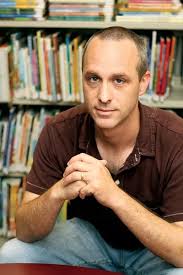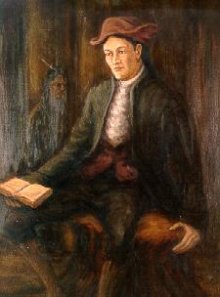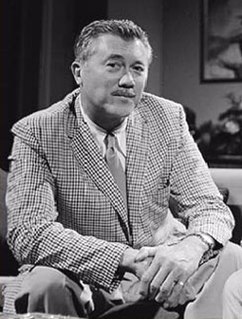A Quote by Alan Bennett
Authors, she soon decided, were probably best met within the pages of their novels, and were as much creatures of the reader's imagination as the characters in their books. Nor did they seem to think one had done them a kindness by reading their writings. Rather they had done one the kindness by writing them.
Related Quotes
In the candle's flickering light, the library's thousands of books emerged from the shadows, and for a moment Nicholas could not help admiring them again. During free time he had almost never looked up from the pages he was reading, but now he saw the books anew, from without rather than from within, and was reminded of how beautiful they were simply as objects. The geometrical wonder of them all, each book on its own and all the books together, row upon row, the infinite patterns and possibilities they presented. They were truly lovely.
The characters within a book were, from a certain point of view, identical on some fundamental level ? there weren't any images of them, no physical tangibility whatsoever. They were pictures in the reader's head, constructs of imagination and ideas, given shape by the writer's work and skill and the reader's imagination. Parents, of a sort.
At school he had done things which had formerly seemed to him very horrid and made him feel disgusted with himself when he did them; but when later on he saw that such actions were done by people of good position and that they did not regard them as wrong, he was able not exactly to regard them as right, but to forget about them entirely or not be at all troubled at remembering them.
Kindness is not like a barter, so much for so much; or so much by contract, and my duty done. But kindness is like a righteousness or like a worship, not done unless it be done all I can. For the heart must run forth without measure like a child, and kindness be wound around like a child's arms about the neck, not by measure, but as tightly and as long as they can be.
Be the living expression of God's kindness; kindness in your eyes, kindness in your face, kindness in your smile, kindness in your warm greetings. We are all but His instruments who do our little bit and pass by. I believe that the way in which an act of kindness is done is as important as the action itself.
I longed that those who, I have reason to think, owe me ill will, might be eternally happy. It seemed refreshing to think of meeting them in heaven, how much soever they had injured me on earth: had no disposition to insist upon any confession from them, in order to reconciliation, and the exercise of love and kindness to them. Oh! it is an emblem of heaven itself, to love all the world with a love of kindness, forgiveness, and benevolence.
For the first time in her life Granny wondered whether there might be something important in all these books people were setting store by these days, although she was opposed to books on strict moral grounds, since she had heard that many of them were written by dead people and therefore it stood to reason reading them would be as bad as necromancy. Among the many things in the infinitely varied universe with which Granny did not hold was talking to dead people, who by all accounts had enough troubles of their own.
I remember one letter from a girl in a midwestern town who read one of my books and thought she had discovered it- that no one had ever read it or knew about it. Then one day in her local library she found cards for one or two of my other books. They were full of names- the books were borrowed all the time. She resented this a bit and then walked around the town looking in everybody's face and wondering if they were the ones who were reading my books. That is someone I write for.
Yet there were times when he did love her with all the kindness she demanded, and how was she to know what were those times? Alone she raged against his cheerfulness and put herself at the mercy of her own love and longed to be free of it because it made her less than he and dependent on him. But how could she be free of chains she had put upon herself? Her soul was all tempest. The dreams she had once had of her life were dead. She was in prison in the house. And yet who was her jailer except herself?
In the final exam in the Chaucer course we were asked why he used certain verbal devices, certain adjectives, why he had certain characters behave in certain ways. And I wrote, 'I don't think Chaucer had any idea why he did any of these things. That isn't the way people write.' I believe this as strongly now as I did then. Most of what is best in writing isn't done deliberately.
I have a very close friend who is a brilliant clown, and I always wanted to do a show with him. So I did one year at La MaMa Theatre. I had not done stilts before that show, and I had about two weeks to learn how to do that, and they were just made with off-off Broadway money. The ones that I had in Rogue One were made by [Industrial Light & Magic]. So they were really easy. They were made with actual prosthetic feet on the bottom. They were athletic, in a way. I could run in them. There was a bounce to them that I could use.
Every generation likes to think that children don't read as much as they used to when they were young! You listen to some adults saying they were going around reading 'Ulysses' when they were seven or eight! I think children are voracious readers if you give them the right books and if you make those books accessible to them.




































